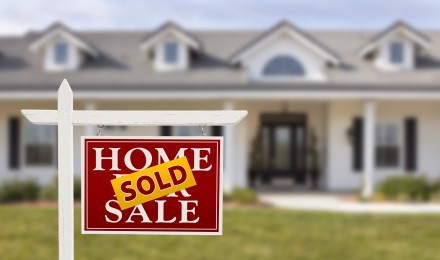During the Great Recession, the hardest hit sector of the economy was the housing market. In fact, subprime mortgages and overpriced houses can be blamed for the entire recession. When the bubble burst, home prices slipped and many people were forced into foreclosure. But now as the housing market continues to pick up with more new homes being built and home prices increasing, many hedge funds and private equity companies are snatching up the still depressed real estate.
Buying a lot of real estate does not mean that these companies are just buying homes. They are purchasing undeveloped land, homebuilders, building supply companies and foreclosed homes. In essence, everything that has to do with the housing market, they are buying them. They are using their leverage to get in while the prices are low, and when their values skyrocket again (and they are making huge bets that that jump is coming soon) these companies will stand to profit immensely.
Some of the big names in the hedge fund world are the ones picking up these properties. Paulson and Company has bought enough vacant land to build 25,000 houses. In 2011 Blackstone spent $2.7 Billion on enough land to build 17,000 houses at one point spending $100 Million per week. Silver Bay Realty Trust has already snagged 2,500 foreclosed homes and they plan to acquire another 3,100. All of these companies are using their buying power to buy up real estate while it is still very cheap. Those buying existing homes then do a quick remodel and rent them. This brings in cash while they wait for the value to appreciate before selling.
But hedge funds and private equity companies are not the only ones standing to gain. Many publicly traded homebuilders are seeing their stocks hit 52-week highs. The entire industry is looking strong and looking to regain its place prominently in the economy.
While the housing crisis led the economic downturn, housing often leads economic upturns. People are spending money on their homes; it also means buying new furniture, new vehicles for their commute and it is a signal of overall positive consumer confidence. The biggest concern is that while buying and selling houses is good for the economy, it may not be great for institutional investors to be doing so. In 2011 27% of all housing sales were completed by companies rather than individuals. It is this artificial buying and selling (buying low and creating a market to drive up the price in order to flip the property) that caused the bubble to burst in the first place. But there is a lot of movement in the housing market, and it is helping to encourage the economy.
During the Great Recession, the hardest hit sector of the economy was the housing market. In fact, subprime mortgages and overpriced houses can be blamed for the entire recession. When the bubble burst, home prices slipped and many people were forced into foreclosure. But now as the housing market continues to pick up with more new homes being built and home prices increasing, many hedge funds and private equity companies are snatching up the still depressed real estate.
Buying a lot of real estate does not mean that these companies are just buying homes. They are purchasing undeveloped land, homebuilders, building supply companies and foreclosed homes. In essence, everything that has to do with the housing market, they are buying them. They are using their leverage to get in while the prices are low, and when their values skyrocket again (and they are making huge bets that that jump is coming soon) these companies will stand to profit immensely.
Some of the big names in the hedge fund world are the ones picking up these properties. Paulson and Company has bought enough vacant land to build 25,000 houses. In 2011 Blackstone spent $2.7 Billion on enough land to build 17,000 houses at one point spending $100 Million per week. Silver Bay Realty Trust has already snagged 2,500 foreclosed homes and they plan to acquire another 3,100. All of these companies are using their buying power to buy up real estate while it is still very cheap. Those buying existing homes then do a quick remodel and rent them. This brings in cash while they wait for the value to appreciate before selling.
But hedge funds and private equity companies are not the only ones standing to gain. Many publicly traded homebuilders are seeing their stocks hit 52-week highs. The entire industry is looking strong and looking to regain its place prominently in the economy.
While the housing crisis led the economic downturn, housing often leads economic upturns. People are spending money on their homes; it also means buying new furniture, new vehicles for their commute and it is a signal of overall positive consumer confidence. The biggest concern is that while buying and selling houses is good for the economy, it may not be great for institutional investors to be doing so. In 2011 27% of all housing sales were completed by companies rather than individuals. It is this artificial buying and selling (buying low and creating a market to drive up the price in order to flip the property) that caused the bubble to burst in the first place. But there is a lot of movement in the housing market, and it is helping to encourage the economy.







